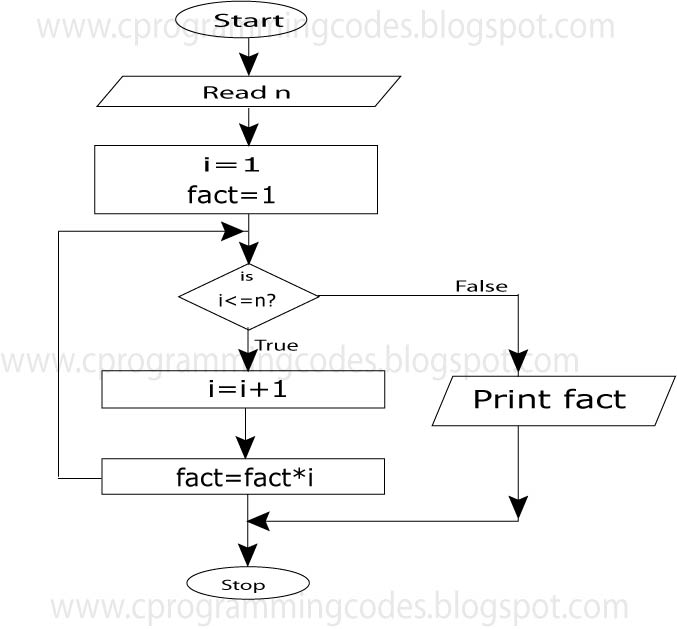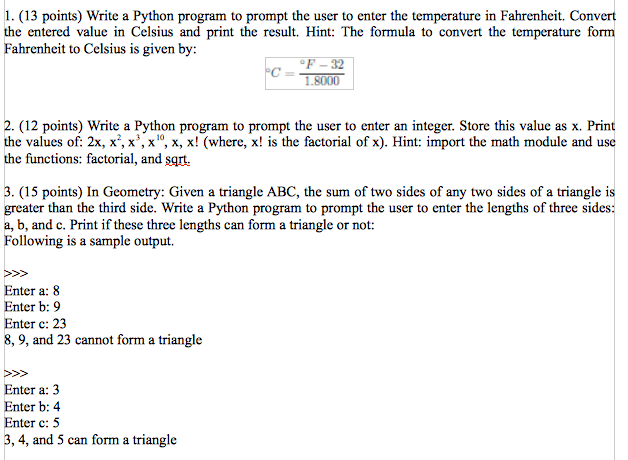How To Write A Factorial Program In Python
Here is what i wrote: number = raw_input('Enter an integer= ') if number for k in range(1,(number)): TypeError: range() integer end argument expected, got str. I don't understand what it means and as far as i know the code should be working, Please Help! This works perfectly: factorial.py #!/usr/bin/env python # imports go here __author__ = 'Michael O. Duffy' __status__ = 'Development' def factorial(n): '' Calculate a factorial of an integer '' factorial = 1 if n.

Existing solution The shortest and probably the fastest solution is: from math import factorial print factorial(1000) Building your own You can also build your own solution. Generally you have two approaches. The one that suits me best is: from itertools import imap def factorial(x): return reduce(long.__mul__, imap(long, xrange(1, x + 1))) print factorial(1000) (it works also for bigger numbers, when the result becomes long) The second way of achieving the same is: def factorial(x): result = 1 for i in xrange(2, x + 1): result *= i return result print factorial(1000). A lot of these methods are very good but I would say your best bet is always to use the built in function.

Python procedure for Factorial. Product = product * i i = i + 1 return product #----- # Main program: # (execution starts at the first statement. Function for Factorial in Python. Ask Question. If you want/have to write it yourself. Time running program varying wildly on each try?-1. Function for Factorial in Python. Ask Question. If you want/have to write it yourself. Time running program varying wildly on each try?-1. # Python program to find the factorial of a number using recursion def recur_factorial(n): ''Function to return the factorial of a number using recursion'' if n.
However there are some very easily creatable ones by yourself if you want to see what is going on. Activate A Window By Hovering Over It With The Mouse. A quick one I came up with is much the same as many of them here. Adobe Photoshop Lightroom 4 Portable Water on this page. Def factorial(n): x = 1 li = list(range(1, n + 1)) for each in li: x = x * each print(x) This is a rather efficient code, the advantage being that a list is created if you wan't to manipulate some data from the list although im not to sure why you would really. Edit: Only just saw that I posted this on an old thing.